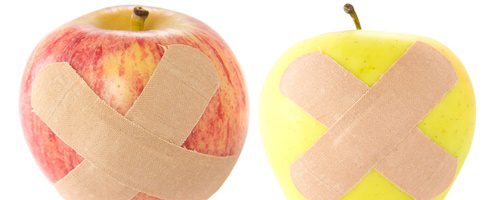
Brazil has a lot of ugly fruit. I strolled through several street markets during my recent trip to Sao Paulo and Rio de Janeiro, and many produce items were unfamiliar to me. Wisely, the vendors would entice by offering a slice of their fruit to taste.
Atemoia is one such ugly fruit. I was handed a generous chunk of this cross between two tropical fruits – the cherimoya and the sugar-apple. The atemoia won’t win any beauty contests with its green, bumpy flesh, but it won me over with its sweet taste, similar to that of a piña colada.
All over the world, one can find ugly fruit. And vegetables. Bruised. Blemished. Misshapen. It is estimated that a third of food produced in the world is never consumed, to the tune of food waste being as high as $400 billion a year (Waste and Resources Action Program report, 2015).
Noting this trend, the European Union scrapped rules that prevented the sale of misshapen or oddly-sized fruit and vegetables. Supermarkets responded and were quite clever in their marketing to consumers. French supermarket Intermarché, for example, launched its “Inglorious Fruits and Vegetables” campaign, selling its “odd” produce at a 30 percent discount. Witty ads from ad agency Marcel gave a huge boost to the campaign. The store experienced a sell-out of all of its initial stocking of the “inglorious” fruit and vegetables; supermarket traffic increased overall by 24 percent!
Other stores worldwide followed suit to combat food waste. UK retailer ASDA highlights its “wonky” produce; Australia’s Woolworths touts its “Odd Bunch” campaign; and in Canada, Loblaws promotes its “naturally imperfect” produce.
It appears the U.S. is lagging in its efforts to control food waste, although The Compass Group USA and Bon Appetit Management launched “Imperfectly Delicious Produce” last year – a program to include “ugly” produce for sale in its restaurants and cafes. This is just one example that I found; I’m hopeful that many of our grocery stores are putting finishing touches on such plans to sell imperfect produce.
I’d like to think that sales of “ugly” produce can only benefit farmers, shoppers, retailers, etc. Please share below if you know of supermarkets, suppliers, institutions, etc. that are hopping on the “ugly” produce bandwagon, er, shopping cart!

